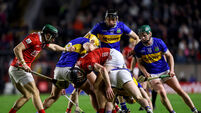Chavez 'stable' after post-op scare

Venezuela’s president Hugo Chavez has a respiratory infection after undergoing cancer surgery in Cuba and must have “complete rest” for the next few days, the government said today.
The socialist leader is in a stable condition after being diagnosed with the infection on Monday,














